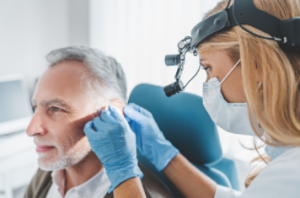Audiologists are trained individuals who can read musical notes and take specialized tests to determine the types of sounds a person is hearing. A person seeking the services of an audiologist must fill out an Audiology Licensing Statement. The Scope of Practice document explains the scope of professional activities, skills, and interests of audiologists. It provides examples of different settings in which they frequently engage and identifies audiologists as independent professionals. The applicant’s APE paper should be signed stating that they understand the information presented and agrees with its accuracy.

An audiologist in Independent audiologists Adelaide by SASHC has the following areas of specialty: hearing testing, diagnostic audiometry, counselling of audiologists, preventive audiology, rehabilitation of patients with hearing disorders, evaluation of patients with auditory disorders and voice disorders, etc. They are required to receive special training in any one of these areas. Audiologists also conduct diagnostic testing and prescribe treatments for auditory disorders as most audiologists are also teachers and perform counselling of individuals with auditory processing problems.
Audiologists acquire their formal education at an educational institution and receive clinical training at an accredited university or vocational/technical centre. Usually, two years is required for students to obtain formal clinical training. Students will study physiology, anatomy, medical terminology, physiology, psychology, music, and acoustics. In addition to classroom learning, audiologists gain clinical training in various environments, such as offices, hospitals, laboratories, and training programs. Audiologists also participate in seminars and workshops regularly. In addition to the formal education process, audiologists may obtain formal or informal training through continuing education and licensure.
Audiologists in Independent audiologists Adelaide by SASHC are not required to have a graduate degree in the field, although some audiologists provide additional education at post-graduate or other studies. However, most audiologists offer a Master’s Degree or higher and usually begin their careers as consultants. The typical coursework for audiologists interested in the Vestibular rehabilitation program includes anatomy, physiology, neuroanatomy, neurology, vestibular rehabilitation, hearing sciences, audiology, and counselling. Audiologists may also choose to focus on either the counselling or rehabilitation aspect of audiology. In most states, audiologists must pass a licensing exam before they can practice legally.
Many audiologists work independently, in private practices, or as consultants for other healthcare providers. Some audiologists work with a private practice or work in a hospital or healthcare facility as an outpatient. Some audiologists work in colleges and universities providing private education, therapy, or counselling. Other audiologists work in the business world, offering consulting or business consulting services to healthcare facilities and companies. Finally, some audiologists decide to work with the public, either as public speakers or organizers of conferences or conventions. Still, others choose to work only in the healthcare industry, teaching or research.
Audiologists are the professionals who can assess and diagnose the needs of individuals who suffer from hearing loss or balance disorders. They help determine which type of treatment is needed and help provide the emotional support needed to help them manage their conditions. If you are interested in this line of work, you will need to have completed your bachelor’s degree and gain a Masters degree in audiology or opt to take courses online. With training and experience, you can be an integral part of the hearing health care industry.
